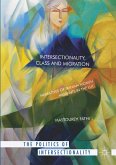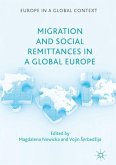This book offers a unique and innovative way of looking at the paradoxical consequences of human mobility. Based on a three-year transnational multi-sited longitudinal research project, it demonstrates that not all migrants acquire, transfer and implement social remittances in the same way. Whilst the circulation of ideas, norms and practices is an important aspect of modernity, acts of resistance, imitation and innovation mean that whilst some migrants become ordinary agents of social change in their local microcosms, others may contest that change. By putting this individual agency centre stage, the authors trace how social remittances are evolving, and the ambiguous impact that they have on society. This thought-provoking work will appeal to students and scholars of sociology, geography and anthropology.
"Migrants As Agents of Change makes a significant contribution to the existing theoretical, methodological and empirical literature on social remittances. ... this is a very imaginative and scholarly book, which makes a substantial theoretical and empirical contribution to existing migration scholarship, and deserves to be widely read." (Anne White, Central and Eastern European Migration Review, Vol. 5 (2), 2016)








